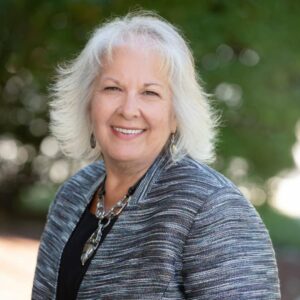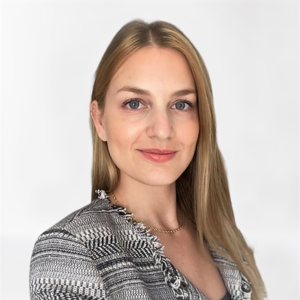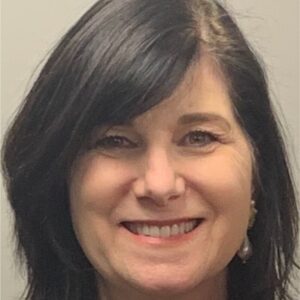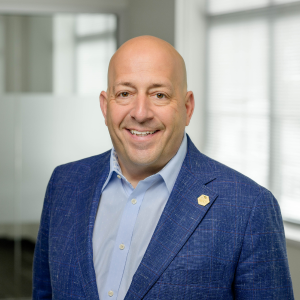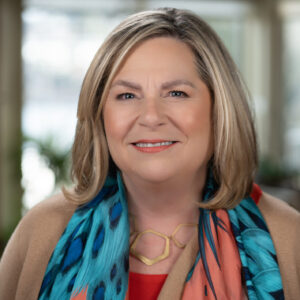Trying a place on for size
For Lorraine Pasadino, getting lost was an affirmation. It was around 7:30 a.m. and Pasadino was trying to get a cup of coffee. A friendly woman with a big smile peeked out and asked if she could help, then showed her where the café was.
Pasadino was trying to gauge if Pennswood Village in Newtown, Pennsylvania, would be a good fit. Pasadino, a New York native and former college professor, did her research. She solicited opinions from friends who lived there. She read the mission statement and strategic plans of the community, influenced by Quaker principles. But ultimately, the early-morning experience sealed the deal.
“There’s something about the culture you can intuitively sense,” Pasadino says. “You can’t make it up. We’re rather transparent in what potential residents will see and experience here—and boy does it work because we’re over 90 percent capacity.”
Pennswood has a number of ways to keep in touch with prospective residents. The continuing care retirement community hosts informational events, panels, speaker series, luncheons, cocktail parties and seminars; produces a bimonthly e-newsletter and blog; and maintains a presence on social media. But the ultimate driver is the Be Our Guest program, the long-term care version of the automobile industry’s test drives.
Prospective residents can arrange to stay at Pennswood for several days where they can dine, attend lectures, go swimming and take advantage of all the amenities offered on the 82-acre campus in southeastern Pennsylvania. It’s an immersive experience, says CEO Ben Hoyle, of the program that began more than seven years ago.
“Giving prospective residents an opportunity to get a sense of the community is important to see if this place is right for you,” says Hoyle, who has served as CEO for three years and has been with the organization for 21 years. “It also helps them to answer the question: Are you going to be happy here?”
During the economic downturn, Pennswood took a hard look at its marketing process. Hoyle says Pennswood realized going forward it needed to build relationships with prospective residents. “The marketing team needed to be front and center in the development of that relationship. At the same time, they realized the importance of the resident in that process.”
The process has been reoriented so the marketing department is the first point of contact with potential residents. Marketing director Jennifer Doone and her team of four give the initial, approximately two-hour tour of the facility where prospective residence can view units, review contracts and discuss pricing. But the questions the department gets asked the most are the ones it can’t answer: What does it feel like to live here? Are there people like me? Will I make friends? Am I going to find a home?
“I always say to our prospective guests, I go home every night,” Doone says. “I’m not the person who you want to talk to about what it feels like to live here. You need to talk to residents to get their perspective.”
The marketing department asks residents like Pasadino to mingle with prospective residents, similar to the way a university tour works, particularly over food. “We ask residents to host meals when someone comes from a tour or visit, which I think accomplishes many things in terms of experiencing who lives in the community as well as what the food tastes like. I always think that’s important,” Doone says.
An upfront tour plus the one-on-one time with current residents gives prospectives a chance to digest the information in stages and ask better questions. Pennswood encourages prospective residents to make return visits, whether it’s an upcoming program listed in the bulletin, dinner with residents or something that matches their interests. “I think the prospective resident is better able to understand and absorb everything they’ve experienced that way,” Hoyle says.
The marketing staff works with a resident-led welcoming committee to pair a prospective with a current resident who will act as a host sponsor, make introductions, navigate the campus and act as a resource for any questions. They’re a first friend, Doone says.
Assignments are based on similar interests and histories. Sometimes, prospective residents will request to meet with current residents who share particular experiences, including alma maters and careers. The marketing department does most of the matching from memory based on what information they’ve gleaned about residents over time, and Doone says her it’s important to recruit all residents to serve as hosts.
“It’s not just that we can identify the extroverts who would be great at talking with people in front of a crowded room,” Doone says. “We need to have relationships with our residents who have all different kinds of personalities and all different kinds of interests so that when we see someone coming through the door, we know who to match them up with. We want to be able to provide everyone with a match.”
A resident-driven experience is one way Pennswood tries to distinguish itself in the marketplace, key for its 36 years of operation in a saturated market. “That was part of the culture that the first generation of residents and early leaders of Pennswood, including the original board, wanted to foster,” Hoyle says. “We wanted to build a community, and we defined community in a very broad sense. We were all part of it: The residents, the staff and the board.”
Word seems to have gotten out. The CCRC often has a years-long waiting list, and its largest source of move-ins are resident referrals.
“This is a very distinctive place in the way things are done here and what the culture is,” Pasadino says.

Nicole was Senior Editor at I Advance Senior Care and Long Term Living Magazine 2015-2017. She has a Journalism degree from Kent State University and is finalizing a master’s degree in Information Architecture and Management. She has extensive studies in the digital user experience and in branding online media. She has worked as an editor and writer for various B2B publications, including Business Finance.
Related Articles
Topics: Articles , Business Marketing Including Social Media and CRM , Executive Leadership , Facility management


